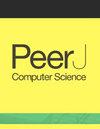TechMark: a framework for the development, engagement, and motivation of software teams in IT organizations based on gamification
IF 3.5
4区 计算机科学
Q2 COMPUTER SCIENCE, ARTIFICIAL INTELLIGENCE
引用次数: 0
Abstract
In today’s fast-moving world of information technology (IT), software professionals are crucial for a company’s success. However, they frequently experience low motivation as a result of competitive pressures, unclear incentives, and communication gaps. This underscores the critical need to handle these internal marketing challenges such as employee motivation, development, and engagement in IT organizations. Internal marketing practices aiming at attracting, engaging, and inspiring employees to use excellent services have become increasingly important. Internal marketing is attracting, engaging, and motivating employees as internal customers to utilize their quality services. Gamification has emerged as a significant trend over recent years. Despite the expanding use of gamification in the workplace, there is still a lack of focus on internal marketing tactics that incorporate gamification approaches. Thus, addressing the challenges related to employee motivation, development, and engagement is crucial. Therefore, as a principal contribution, this research presents a comprehensive framework designed to implement gamified solutions for software teams of IT organizations. This framework has been tailored to effectively address the challenges posed by internal marketing by optimizing motivation, development, and engagement. Moreover, the framework is applied to design and implement a gamified work portal (GWP) through a systematic process, including the design of low-fidelity and high-fidelity prototypes. Additionally, the GWP is validated through a quasi-experiment involving IT professionals from different IT organizations to authenticate the effectiveness of framework. Finally, the outclass results obtained by the gamification-based GWP highlight the effectiveness of the proposed gamification approach in enhancing development, motivation, and engagement while fostering ongoing knowledge of the employees.TechMark:基于游戏化的 IT 组织软件团队发展、参与和激励框架
在当今快速发展的信息技术(IT)领域,软件专业人员对公司的成功至关重要。然而,由于竞争压力、激励机制不明确和沟通不畅等原因,他们的工作积极性往往不高。这突出表明,IT 企业亟需应对员工激励、发展和参与等内部营销挑战。旨在吸引、吸引和激励员工使用优质服务的内部营销实践变得越来越重要。内部营销就是吸引、吸引和激励作为内部客户的员工使用其优质服务。近年来,游戏化已成为一种重要趋势。尽管游戏化在工作场所的应用不断扩大,但结合游戏化方法的内部营销策略仍缺乏关注。因此,解决与员工激励、发展和参与相关的挑战至关重要。因此,作为主要贡献,本研究提出了一个综合框架,旨在为 IT 组织的软件团队实施游戏化解决方案。通过优化激励、发展和参与,该框架可以有效应对内部营销带来的挑战。此外,该框架还被应用于通过系统化流程设计和实施游戏化工作门户(GWP),包括设计低保真和高保真原型。此外,还通过一个由来自不同 IT 组织的 IT 专业人员参与的准实验对 GWP 进行了验证,以证明该框架的有效性。最后,基于游戏化的 GWP 所取得的优异成绩凸显了所建议的游戏化方法在加强员工发展、激励和参与方面的有效性,同时也促进了员工对知识的持续了解。
本文章由计算机程序翻译,如有差异,请以英文原文为准。
求助全文
约1分钟内获得全文
求助全文
来源期刊

PeerJ Computer Science
Computer Science-General Computer Science
CiteScore
6.10
自引率
5.30%
发文量
332
审稿时长
10 weeks
期刊介绍:
PeerJ Computer Science is the new open access journal covering all subject areas in computer science, with the backing of a prestigious advisory board and more than 300 academic editors.
 求助内容:
求助内容: 应助结果提醒方式:
应助结果提醒方式:


